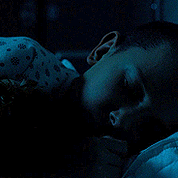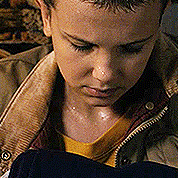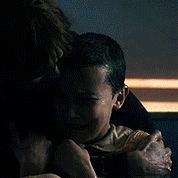#brenner i'm reanimating your corpse so I can kill you again
Explore tagged Tumblr posts
Text









who wants to sob with me about how El in the lab is basically living in a Harlow monkey experiment?
[info below the cut if you're unfamiliar. tl;dr very sad and unethical contact comfort and maternal deprivation experiments on baby monkeys]
El being torn from her mother and raised in a sterile environment full of cold hard surfaces with probably no loving contact ever -> El clinging to her stuffed animal in the lab because it's literally the only soft object available to her -> El spending her lab recovery phase (s1-2) swaddling herself in big warm clothes and blankets and soft textures ->
El reacting emotionally to Brenner's touch because it's the closest thing she's ever known to the contact comfort and parental love she craves innately even though she hates and fears him ->
El with irreparable social deficits due to isolation -> El not being very good at interacting with her peers and tending to stay apart from the group -> El getting bullied ->
El being in the fetal position in so many lab scenes -> El continuing to curl up in a ball when stressed even outside the lab because she's never had anywhere to turn for safety or comfort ->
El craving touch and clinging to her friends and parental figures for the love and comfort and reassurance she never got as a child -> me sobbing forever


Using methods of isolation and maternal deprivation, Harlow showed the impact of contact comfort on primate development with his ethically controversial experiments in the 1960s.
Infant monkeys were taken from their mothers and raised in a laboratory setting, with some infants placed in separate cages away from peers. In isolation, the monkeys showed disturbed behavior, staring blankly, circling their cages, and engaging in self-mutilation. When the isolated infants were re-introduced to the group, they were unsure of how to interact, and did not stand up for themselves when bullied.
Even without complete isolation, the monkeys raised without mothers developed social deficits, showing reclusive tendencies and clinging to their cloth diapers. Harlow was interested in the infants’ attachment to the cloth, speculating that the soft material may simulate the comfort provided by a mother’s touch.
Harlow took infant monkeys from their biological mothers and gave them two inanimate surrogate mothers: one made of wire, and the other covered in soft terry cloth. Harlow found that the infants spent significantly more time with the terry cloth mother than they did with the wire mother, even if the wire mother provided food and the cloth one did not.
Infants also turned to inanimate surrogate mothers for comfort when they were faced with new and scary situations. If an alarming noise-making toy was placed in the cage, infants with surrogate mothers would retreat and cling to them for comfort before exploring; infants without surrogate mothers were paralyzed with fear, huddled in a ball sucking their thumbs, rocking, or screaming.
#I know it doesn't exactly fit the analogy but duffers if that's why you named her mom Terry i'll be there soon#eleven#gifs#mine#harlow monkey experiment#angst#lab feels#lizlemon[crowdbooing].jpg#the alarming toy / clinging to surrogate mother part -> elmike and dustin's hammer thing#I'm gonna have to do a whole other post about that instead of writing a novel in the tags#anyway: I'm crying#and this has been on my mind since the first time I watched s1 years ago#I didn't realize until making this post how often she's curled up in a ball in the lab#brenner i'm reanimating your corpse so I can kill you again#btw i'm carrying el around in one of those front baby sling things. yes at her current age. it's a workout but it's necessary
135 notes
·
View notes